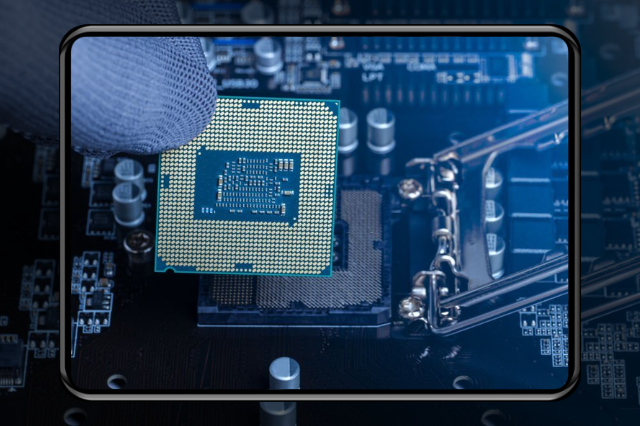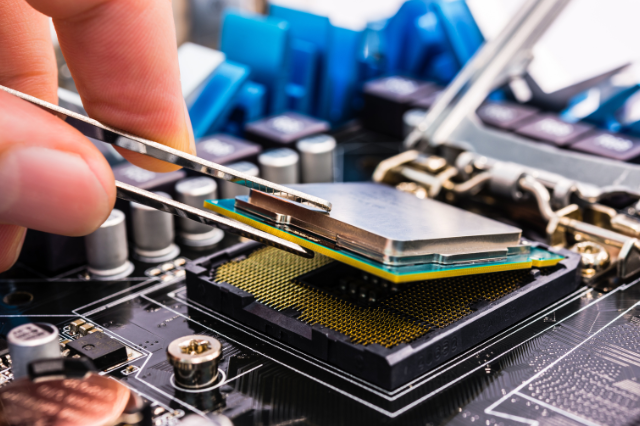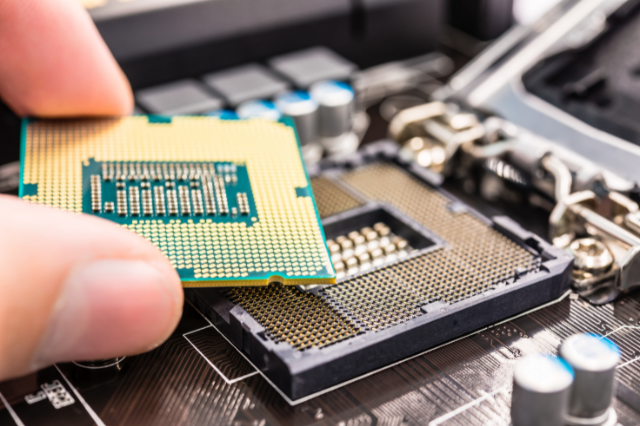
loading...

VLSI (Very Large Scale Integration) is a highly specialized field of electronics engineering that involves the design and fabrication of integrated circuits that contain millions of transistors. Modern technology depends on it. After all, it helps in the development of cutting-edge products like smartphones, smart devices, and autonomous cars.
It's no wonder VLSI is becoming a lucrative career option for many, as it offers excellent salary potential, career growth opportunities, and intellectual challenges.
If you have the right skills and expertise, a career in VLSI can be both financially rewarding and personally fulfilling for you. Let’s know the skillsets you need to develop to become a VLSI professional.
What skills are necessary for a successful career in the VLSI industry?
The VLSI industry is a highly specialized field that requires a combination of technical skills, soft skills, and industry-specific knowledge to establish a successful career. By gaining strong skills through professional VLSI training, you will be able to create innovative designs that stand out in the marketplace.
Technologies and tools for the VLSI industry are constantly being developed to keep up with the rapid evolution of the industry. Development and refinement of your skills are crucial for staying competitive and up-to-date.
In order to succeed in this field, you will need the following skills:
Strong foundation in digital electronics
VLSI design is based on digital electronics, so having a strong understanding of digital circuits, combinations and sequences of logic, and Boolean algebra is essential. VLSI design relies on this knowledge.
Proficiency in VLSI design tools
A VLSI designer needs to be proficient in industry-standard design tools such as Cadence, Synopsys, and Mentor Graphics. The purpose of these tools is to create, verify, and optimize complex designs. Therefore, developing these skills is necessary for you!
Knowledge of analog and mixed-signal design
The design of VLSI involves both digital and analog components, so it is essential to understand analog and mixed-signal circuitry. Having a sound knowledge of amplifier design, filter design, and signal integrity analysis is a must to succeed in this field.
Familiarity with industry standards and design processes
VLSI design processes and industry standards are highly regulated in the field. It is essential to be familiar with these standards and processes in order to create successful designs. The Institute of Electrical and Electronics Engineers (IEEE) and the Design for Manufacturing (DFM) guidelines are two key standards in the VLSI industry. Make sure you are well aware of these processes.
Strong problem-solving skills
As a VLSI designer, you also need to have strong problem-solving skills to identify and solve complex design problems efficiently. This includes analyzing, debugging, and finding efficient and effective solutions.
Effective communication skills
VLSI designers have to work in teams. Effective communication skills help to articulate design ideas and collaborate with others. Taking feedback from team members and explaining complex design ideas will be a part of your job.
Continuous learning
Keeping up to date with the latest advancements in VLSI is essential since the field is constantly evolving. Participating in industry conferences and learning about the latest tools and technologies is also part of it.
Developing these skills is a must if you want to establish a successful career in this dynamic and rewarding field. If you are interested in learning more about this industry, consider taking a professional VLSI course.
Develop all the required skills with the FutureWiz VLSI Design course
FutureWiz offers a comprehensive VLSI (Very Large Scale Integration) design course that is designed to help students develop all the skills required to establish a successful career in the industry. It covers a wide range of topics, including digital and analog circuits, VLSI design tools, industry standards, and design processes.
Our online VLSI course covers the key industry standards and design processes in the VLSI industry, including the Institute of Electrical and Electronics Engineers (IEEE) standards and the Design for Manufacturing (DFM) guidelines. We adopt a hands-on approach with an emphasis on practical application and problem-solving for effective learning.
With the skillsets you learn through our course, you will be ready to establish a successful career in VLSI. For further information, reach out to us today!
 A to Z on India, Japan & the Future of Semiconductor Industry: A New Chapter in Tech Collaboration
A to Z on India, Japan & the Future of Semiconductor Industry: A New Chapter in Tech Collaboration
 RTL Design vs Physical Design: What's the Real Difference?
RTL Design vs Physical Design: What's the Real Difference?
 The Future of the Semiconductor Industry: What Indian Students Should Know
The Future of the Semiconductor Industry: What Indian Students Should Know
 Top 7 Career Paths After Completing a VLSI Course
Top 7 Career Paths After Completing a VLSI Course
 Best Time Management Tips for Students Preparing for VLSI Careers
Best Time Management Tips for Students Preparing for VLSI Careers
 Mastering VLSI Physical Design: A Comprehensive Course Overview
Mastering VLSI Physical Design: A Comprehensive Course Overview
 The Complete FPGA and ASIC Guide
The Complete FPGA and ASIC Guide
 Verilog Essentials: Mastering the Fundamentals of Hardware Description Language
Verilog Essentials: Mastering the Fundamentals of Hardware Description Language
 Unleashing the Power of System Verilog: A Comprehensive Guide for Aspiring Designers
Unleashing the Power of System Verilog: A Comprehensive Guide for Aspiring Designers
 Demystifying VLSI chip Design: Exploring the Core Concepts of VLSI Courses
Demystifying VLSI chip Design: Exploring the Core Concepts of VLSI Courses
 Basics of VLSI - An Ultimate Guide
Basics of VLSI - An Ultimate Guide
 Career Prospects After Completing A VLSI Course
Career Prospects After Completing A VLSI Course
 Top 5 Reasons To Take Up A Professional VLSI Course
Top 5 Reasons To Take Up A Professional VLSI Course
 Mastering VLSI Design: A Comprehensive Guide To Understanding Complex Integrated Circuits
Mastering VLSI Design: A Comprehensive Guide To Understanding Complex Integrated Circuits
 Future-Proof Your Career With A VLSI Course: How Learning About Integrated Circuits Can Boost Your Job Prospects?
Future-Proof Your Career With A VLSI Course: How Learning About Integrated Circuits Can Boost Your Job Prospects?
 System Verilog: An Overview
System Verilog: An Overview
 Introduction to Hardware Description Language (HDL)
Introduction to Hardware Description Language (HDL)
 Unlock The Potential Of VLSI Design With An Integrated VLSI Course Online
Unlock The Potential Of VLSI Design With An Integrated VLSI Course Online
 Universal Verification Methodology:An Efficient Verification Approach
Universal Verification Methodology:An Efficient Verification Approach
 How to Write a Verilog Module for Design and Testbench
How to Write a Verilog Module for Design and Testbench




